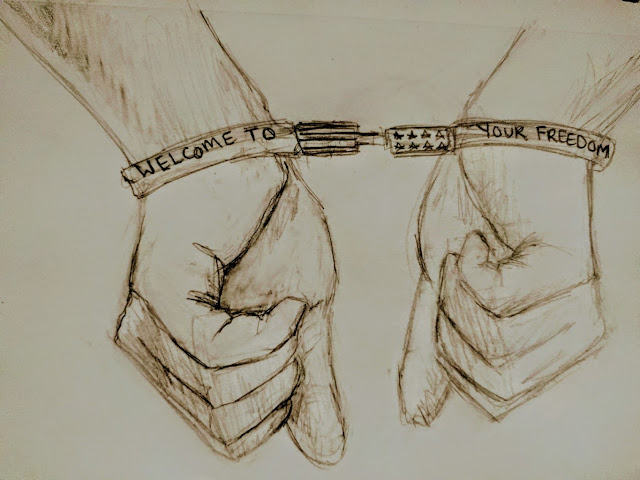Woman Waiting to Take a Photograph by David Eggers
The time frame of this vignette is particularly short, as if no
time passes at all. It appears that the author is writing this vignette while time is
stopped, and he just briefly wanted to give out these buried feelings he had
about this young photographer woman. Perhaps only minutes go by, maybe even just seconds.
2.
What does the text imply about photography and about
photographers?
This text implies that a photographer is not something that you
can just become by capturing a single “thoughtfully timed" picture. Instead, the author
appears to believe that photography is something that takes a lot of study and
skill, and it is clear to him that many amateurs do not understand this. Many
people seem to believe they can just take a picture, make a sketch, and become
a famous rich artist. No, he understands that there is much more to being a
great artist than this.
3.
What is the writer’s attitude toward the woman? What words and
phrases suggest that attitude?
He appears to be neutral about the woman but as you read on, you
see that he subtly down talks her. He states how she watches these people and finds it ironic
that they walk into a store called “Go-Getters,” as she sits in a car that she didn't even buy herself. Eggers writes, “So she sits in her
Toyota Camry, which her parents gave her because it was four years old and they
wanted something new…” Clearly this woman came from a home that has money, and
that she wouldn’t know a go-getter if she stared one in the eye.
4.
How does the writer’s repetition of the term “Go-Getters”
function in the text?
The writer's repetition of the term "Go-Getters" functions as a way to remind the audience that the
photographer is a hypocrite. The woman labels these people passing by as non go-getters, as she sits in the car her parents gave her, trying to capture a single shot that will make her rich and famous. Rather than being a “go getter,” the woman sits and
waits for something good to happen by the click of a camera snap.
5.
How does the final sentence build on observed details?
The final sentence is playing on the fact that it is ironic that
this young photographer is criticizing and labeling these people whom she has
never met before as "non go-getters." All of this is what she does
as she sits in her handed down car, longing to be something else, while she's just a temp at a
company that publishes books about wetland preservations.
6.
What new idea or surprise emerges in the final sentence?
The last sentence of the passage evokes a sense of angry and
annoyance at this photographer. It seems that the author believes that the
woman is being a hypocrite to these people who are minding their own business, being silently judged and made a mockery of without their knowledge.

Comments
Post a Comment